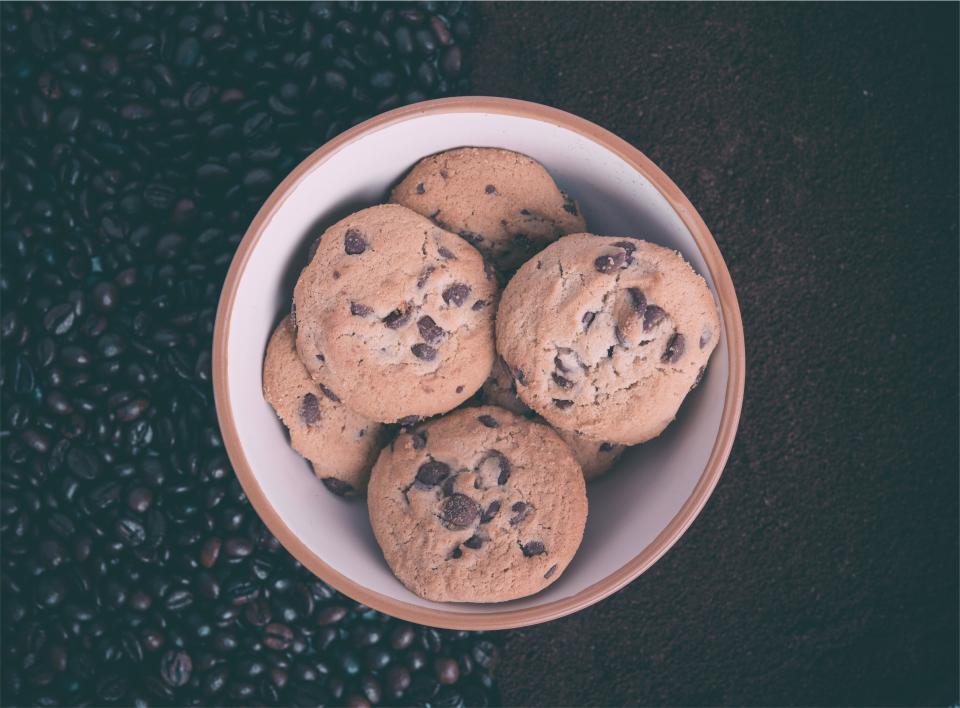Let's face it, we all love a good bean dish now and then. Whether it's a hearty baked bean on toast or a flavourful chili, beans are a staple in many kitchens. But when it comes to our furry friends, we often wonder, "Can dogs eat beans?" The answer, as with many things in the dog world, is a little more complex than a simple yes or no. It's a question that's popped up countless times for me, especially since I have Buster, my Labrador, who'd happily eat anything in sight. So, I've done my research, chatted with the vet, and put together this guide to help you navigate the beany world of dog food.
(Part 1) The Bean-Shaped World of Canine Cuisine

Let's start with the good news: some types of beans are indeed safe for dogs, as long as they are cooked properly and served in moderation. The bad news? Some varieties are a definite no-no, and certain cooking methods can be downright dangerous. So, before you share your next bean feast with your canine companion, let's delve deeper into the world of canine-friendly beans.
1. The Good Guys: The Bean Varieties Your Dog Can Enjoy
There's a whole world of beans out there, but here are the ones that are generally safe for your dog, given they are cooked thoroughly and served in sensible amounts:
- Green beans: A real winner in the dog world! They are packed with vitamins and fibre, making them a great addition to your dog's diet. Just make sure they are cooked through, as raw green beans can be tough to digest. Remember, moderation is key. A few green beans as a treat or added to their regular food are perfectly fine, but don't go overboard.
- Kidney beans: Here's where things get a bit more nuanced. Kidney beans contain a toxin called lectin, which can be harmful if eaten raw or undercooked. However, the good news is that properly cooked kidney beans are generally safe for dogs. A sprinkle of cooked kidney beans on their food now and then won't cause any harm, but always remember to stick to moderation.
- Black beans: Another great source of protein, iron, and fibre, black beans are a nutritious addition to your dog's diet. Again, the golden rule is cooked, not raw, and in reasonable amounts.
- Pinto beans: Another protein and fibre powerhouse, pinto beans are a good option for your furry friend, as long as they are cooked properly and not overdone.
So, there you have it! A few delicious and nutritious bean varieties that can make your dog's taste buds happy. Just remember, "cooked and in moderation" should be your mantra.
(Part 2) The Bad Guys: Beans to Avoid Like the Plague

Now, let's talk about the beans you should steer clear of altogether when it comes to your dog's diet. These are the ones that can cause digestive upset, illness, and even serious health problems.
1. Baked Beans: A Delicious Treat, But Not For Dogs
This is a common culprit, and one that often causes confusion among dog owners. Baked beans, those sweet, saucy treats we adore, are a complete no-no for dogs. Why? They're loaded with sugar, salt, and often contain onions and garlic – ingredients that are toxic to dogs. Even a tiny taste can lead to tummy troubles, and in some cases, more serious issues. So, no matter how much those puppy-dog eyes plead, resist the temptation to share your baked bean feast.
2. Beans with Added Flavourings: A No-Go Zone
This one is pretty straightforward. Beans with added flavourings, like spices, sauces, cheese, or even those cute little bacon bits, are a big no-no for dogs. These added extras often contain ingredients that are harmful to dogs, like onions, garlic, and artificial sweeteners. Stick to plain, cooked beans and avoid any tempting additions. Remember, their taste buds are different from ours!
(Part 3) The Risks of Beans: Understanding the Potential Pitfalls

Now that we know which beans are safe and which ones to avoid, let's delve into the potential risks associated with feeding beans to dogs, even the safe ones. It's essential to be aware of these risks to ensure your dog's health and well-being.
1. Digestive Discomfort: Beans and the Tummy Trouble
Beans, especially when eaten in large quantities, can cause digestive upset in dogs. They're high in fibre, which can lead to bloating, gas, and diarrhoea. While it's not a major concern for most dogs, it's important to be mindful of their intake and avoid feeding them a bean-heavy meal. Remember, a little bit of bean goes a long way, especially for sensitive tummies.
2. Lectin Toxicity: The Case of the Raw and Undercooked Beans
As mentioned earlier, some beans contain lectin, a toxin that can be harmful to dogs. However, this is primarily a concern with raw or undercooked beans. Cooked beans are generally safe, but it's always best to err on the side of caution and avoid feeding your dog large quantities of beans, even the cooked ones.
3. Salt and Sugar Overload: The Price of Those Tempting Treats
Baked beans, as we know, are a major no-go because of their high salt and sugar content. This can lead to serious health problems in dogs, including obesity, diabetes, and heart disease. Remember, what's a delicious treat for us can be a health hazard for our furry friends. Stick to plain, cooked beans, and avoid the temptation to share your sugary snacks.
(Part 4) What to Do If Your Dog Eats Beans: A Guide to Handling the Situation
Let's be honest, accidents happen. Even with the best intentions, your dog might find a way to sneak a few beans when you're not looking. Don't panic! Most of the time, a few stray beans won't cause serious harm. However, if you're concerned, it's best to err on the side of caution and contact your vet.
Here are some warning signs to keep an eye out for:
- Diarrhoea
- Vomiting
- Bloating
- Loss of appetite
- Lethargy
If your dog shows any of these symptoms, it's essential to seek professional veterinary advice. They'll be able to assess the situation, determine the severity, and provide the best course of action for your dog.
(Part 5) The Takeaway: Navigating the Bean-Filled World with Confidence
So, can dogs eat beans? The answer, as you've seen, isn't straightforward. Some types are okay in moderation, while others are a strict no-no. The key takeaway is to be informed and cautious. Avoid baked beans and any beans with added flavourings. Stick to plain, cooked green beans, kidney beans, black beans, and pinto beans in small amounts.
Remember, a dog's diet should primarily consist of high-quality dog food, with a bit of variety thrown in for good measure. A little bit of cooked, plain beans now and then won't hurt, but it shouldn't replace a balanced and nutritious diet.
(Part 6) My Personal Experience: A Cautionary Tale
I'll admit it. I was once a little less cautious about what I fed Buster. In my younger, less knowledgeable days, I gave him a tiny bit of baked beans. He gobbled them down with gusto, but later that night, he had the worst case of diarrhoea you can imagine. It was a messy, smelly, and frankly, embarrassing experience. He was so unwell, and I felt terrible. That night, I vowed never to give him baked beans again, no matter how much he begged with those big puppy-dog eyes. I learned my lesson. Stick to the safe options, folks, and you'll avoid a similar scenario.
(Part 7) The Bean-Friendly Dog: The Exception to the Rule
Of course, there are always those dogs who seem to be able to eat anything without a hitch. My neighbour's Jack Russell, for instance, eats everything in sight, including the occasional dropped chip. He seems to be completely immune to the effects of human food. But, I'm not taking any chances with Buster. He's a bit more sensitive, and I'd rather be safe than sorry. Different dogs, different tolerances. It's always better to err on the side of caution.
(Part 8) The Bottom Line: A Balanced Diet for a Happy Dog
The bottom line is, when it comes to your dog's diet, it's always best to consult your vet if you're unsure about a particular food. They'll be able to provide the best advice for your individual dog, considering their breed, size, and health history. A balanced diet of high-quality dog food is the key to keeping your furry friend happy, healthy, and full of energy. So, keep those beans for yourself, and let your dog enjoy their own delicious and safe meals!
FAQs
1. Can dogs eat canned beans?
Whether dogs can eat canned beans depends on the type and whether it's seasoned. Plain canned green beans, kidney beans, black beans, and pinto beans are generally okay, but always ensure they're cooked and not raw. However, avoid canned baked beans like the plague, as they're packed with sugar, salt, and onions – a toxic trio for dogs.
2. Can dogs eat bean sprouts?
Yes, dogs can eat bean sprouts, provided they're fresh and unseasoned. They're a good source of vitamins and minerals and can be a healthy treat in moderation. A small handful is usually okay, but don't go overboard.
3. Can dogs eat edamame?
Edamame, or soybean pods, can be a healthy treat for dogs in moderation. They're a good source of protein, fibre, and vitamins. However, steer clear of salted, seasoned, or oil-cooked edamame. Plain, cooked edamame is the safest bet.
4. Can dogs eat bean broth?
Plain, unseasoned bean broth is generally okay for dogs. However, avoid any broth made with onions, garlic, or other toxic ingredients. It's best to talk to your vet if you have any doubts.
5. How many beans can a dog eat?
There's no set number of beans that's safe for every dog. It depends on their size, breed, and individual health. A small handful of cooked, plain beans is usually safe for most dogs, but it's always best to start small and see how your dog reacts. Watch out for any signs of digestive upset and consult your vet if you have any concerns.
Everyone is watching
-

Can Dogs Eat Bananas? A Guide to Safe Treats
DOGS & PUPPIESThis comprehensive guide will delve into the world of canine nutrition, focusing on the popular question: can ...
-

Can Dogs Eat Oranges? (Is It Safe or Toxic?)
DOGS & PUPPIESThis article delves into the question of whether dogs can safely consume oranges. We'll explore the nutrition...
-

Can Dogs Eat Grapes? The Shocking Truth About This Fruit
DOGS & PUPPIESThis article delves into the controversial topic of grapes and dogs, exploring the potential dangers associate...
-

Why Do Dogs Eat Poop? Understanding Coprophagia in Dogs
DOGS & PUPPIESThis article delves into the perplexing phenomenon of coprophagia, the act of eating faeces, in dogs. We explo...
-

Can Dogs Eat Shrimp? A Guide to Safety and Risks
DOGS & PUPPIESThis comprehensive guide dives into the world of shrimp and dogs, exploring the potential benefits and risks a...
